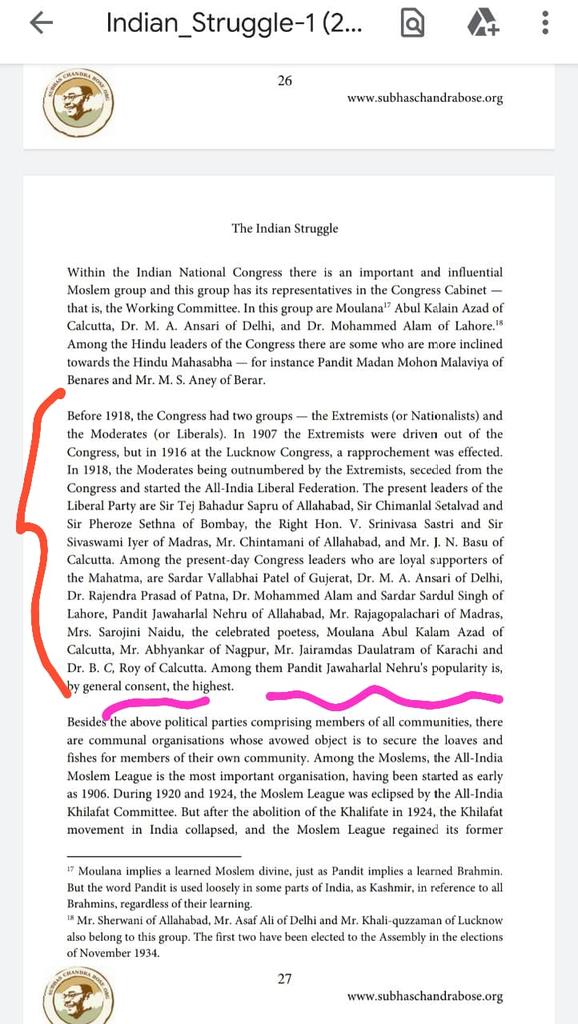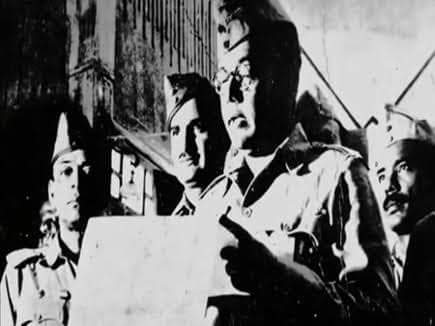" Before 1918, the Congress had two groups — the Extremists (or Nationalists) and
the Moderates (or Liberals). In 1907 the Extremists were driven out of the Congress, but in 1916 at the Lucknow Congress, a rapprochement was effected.
(1/n).
the Moderates (or Liberals). In 1907 the Extremists were driven out of the Congress, but in 1916 at the Lucknow Congress, a rapprochement was effected.
(1/n).

In 1918, the Moderates being outnumbered by the Extremists, seceded from the Congress and started the All-India Liberal Federation. The present leaders of the
Liberal Party are Sir Tej Bahadur Sapru of Allahabad, Sir Chimanlal Setalvad and
Sir Pheroze Sethna of Bombay,
(2/n)
Liberal Party are Sir Tej Bahadur Sapru of Allahabad, Sir Chimanlal Setalvad and
Sir Pheroze Sethna of Bombay,
(2/n)

the Right Hon. V. Srinivasa Sastri and Sir
Sivaswami Iyer of Madras, Mr. Chintamani of Allahabad, and Mr. J. N. Basu of Calcutta.
(3/n).
Sivaswami Iyer of Madras, Mr. Chintamani of Allahabad, and Mr. J. N. Basu of Calcutta.
(3/n).

Among the present-day Congress leaders who are loyal supporters of the Mahatma, are Sardar Vallabhai Patel of Gujerat, Dr. M. A. Ansari of Delhi, Dr. Rajendra Prasad of Patna, Dr. Mohammed Alam and Sardar Sardul Singh of
Lahore, Pandit Jawaharlal Nehru of Allahabad,
(4/n).
Lahore, Pandit Jawaharlal Nehru of Allahabad,
(4/n).

Mr. Rajagopalachari of Madras,
Mrs. Sarojini Naidu, the celebrated poetess, Moulana Abul Kalam Azad of
Calcutta, Mr. Abhyankar of Nagpur, Mr. Jairamdas Daulatram of Karachi and
Dr. B. C, Roy of Calcutta.
(5/n).
Mrs. Sarojini Naidu, the celebrated poetess, Moulana Abul Kalam Azad of
Calcutta, Mr. Abhyankar of Nagpur, Mr. Jairamdas Daulatram of Karachi and
Dr. B. C, Roy of Calcutta.
(5/n).

Among them Pandit Jawaharlal Nehru's popularity is, by general consent, the highest."___Netaji Subhash Chandra Bose ( The Indian Struggle, page number 27).
(n/n).
(n/n).

• • •
Missing some Tweet in this thread? You can try to
force a refresh










